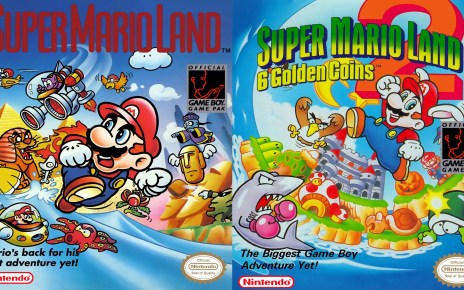A summoning of heroes to Strahl brings with it an impossible reunion for Rio
Author: Drew D.
Light Novel Review: Spirit Chronicles Volume 3 – Requiem for a Goodbye
Rio reaches the Yagumo Region, where light is finally shed upon his and his family’s history
Light Novel Review: Spirit Chronicles Volume 2 – Blessing of the Spirits
As Rio sets out to further discover his past, and his new self, he will encounter the young were-fox Latifa and learn that fate has much more in store for him…
Light Novel Review: Seirei Gensouki: Spirit Chronicles Volume 1 – Kingdom of Lies
College student Haruto is sent to another world of fantasy, magic, and old kingdoms, with his soul merged with orphan Rio. A new individual, he will face the challenges of a new existence.
ANIME REVIEW: Mairimashita! Iruma-kun Season Three
Season Three is one of growth for Iruma and his classmates!
TBT Review: Kirby: Nightmare in Dream Land
A remake every bit as charming as the original.
TBT Review: Kirby & the Amazing Mirror
Kirby journeys through the Mirror World in one of his most grand and charming adventures.
TBT Review: Adventure Island I and II
Prehistoric platforming with a little, “save the princess,” ride-able dinosaurs…and skateboards
TBT REVIEW: Super Mario Land 1 & 2
Pure, charming nostalgia.
TBT Anime Review: Ghost in the Shell: Stand Alone Complex – Solid State Society
A wonderful revisit and ending to the brilliance that is Stand Alone Complex
TBT Anime Review: Ghost in the Shell: S.A.C. 2nd GIG
Ghost in the Shell at its finest…Again
TBT Anime Review: Ghost in the Shell: Stand Alone Complex
Ghost in the Shell at its finest
TBT Anime Review: Ghost in the Shell 2: Innocence
With too much in the way of philosophical exchanges, perhaps the film makers simply forgot that a film needs more than that…
TBT ANIME REVIEW: Ghost in the Shell (1995)
Does the film still hold up after all these years, or has nostalgia hacked our memories?
REVIEW: Justice Chronicles
A JRPG full of character and intrigue, but does it deliver on its potential?
ANIME REVIEW: Mairimashita! Iruma-kun Season Two
Season two sees more lighthearted demon world shenanigans
Looking Back: Drew’s First Five Years at oprainfall
Taking a look back at Drew’s first five years at Operation Rainfall.
TBT REVIEW: The 7th Saga
Grinding, grinding, and more grinding…
E3 2021: Metroid Dread Announced
Metroid Dread is announced and it looks anything but dreadful
E3 2021: Resident Evil Re:Verse in July and Village DLC
…Because it was demanded.




















